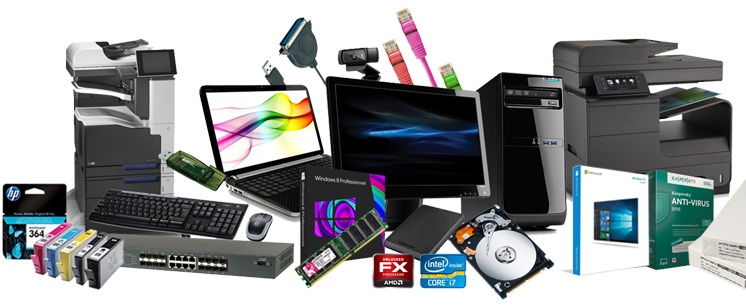In today's tech-driven world, finding quality computer parts at a competitive price can be a challenging task. The demand for high-performance components is steadily growing, while budgets frequently fall short of expectations. This is where overstock computer parts come into play, offering a abundance of options for smart shoppers. Whether you are looking to improve your existing setup or assemble a new system from scratch, understanding how to explore the surplus market can help you save you significant money without sacrificing quality.
This ultimate guide aims to prepare you with the insight you need to effectively buy surplus computer parts online. From identifying dependable sources to understanding what to look for in various components, we will cover all you need you need to make smart purchasing decisions. With insights on value, quality evaluations, and challenges, you'll be fully prepared to find the greatest deals on surplus parts, ensuring that your system functions well and optimally.
Top Ten Things to Look for When Buying Surplus Computer Parts
When shopping for surplus computer parts, the initial thing to think about is the condition of the components. Always seek out items that have been tested for functionality and offer a warranty or return policy. Parts that exhibit little evidence of use are generally better choices, as they are likely to perform well. It is also helpful to check feedback from past purchasers to understand better into the trustworthiness of the parts from various suppliers.
After that, matching is crucial. Ensure that the surplus parts you are looking at are fitting with your present system. This includes verifying specifications like socket configuration for CPUs or the size of motherboards and cases. Additionally, be mindful of the memory specifications, such as RAM frequency and kind, to avoid problems down the line. Double-checking these details can prevent future troubles and ensure you get the most out of your components.
Lastly, don't overlook the threat of counterfeit parts. When purchasing surplus items, always buy from reputable sellers with positive ratings and a history of successful interactions. Familiarize yourself with what authentic components should appear as like, including labels and packaging, to detect potential fakes. Verifying the genuineness of parts can help you avoid low-quality items that could affect your system.
Guidelines on Finding Premium Surplus Computer Parts
During your hunt for surplus computer components , the condition of the parts is paramount . Make it a point to verify seller reviews and assessments to determine their reputation . High-quality components often are sourced from credible vendors that provide thorough specifications and clear images . Pay attention to any signs of wear , blemishes , or damage in the images . Reliable vendors usually perform inspections to ensure that the items are functional and meet certain standards .
Compatibility is another critical factor in spotting premium surplus parts . Ensure check my reference match the requirements of the parts with your existing setup . Verify item codes, compatibility lists , and any necessary connectors or interfaces . A top-notch excess item should work harmoniously with your system without the need for extensive modifications . By verifying compatibility, you can steer clear of complications that might occur due to dissimilar items.
Finally , ask about guarantees or return policies when considering overstock items. A trustworthy vendor should present some form of warranty , indicating faith in the standard of their products . This not only protects your investment but also gives you peace of mind . If computer equipment does not supply details on refunds or guarantees, it may indicate a problem regarding the quality of their surplus components . Always prioritize vendors who stand behind their products .
Are You Considering Surplus PC Parts a Good Investment? Main Considerations

In contemplating surplus PC parts, it's essential to weigh the possible cost benefits in relation to associated risks. Excess components can be substantially less expensive compared to new items, making them appealing for budget-conscious builders and upgraders. Nevertheless, the quality of surplus parts can differ significantly, so you must do thorough research and verify that you buy from reputable sources.
A further key factor is the likelihood of performance and compatibility. While https://anotepad.com/notes/fkssdds6 may function as if they are new, a few could exhibit wear or functional limitations. It’s important to research specific parts before buying and to know the requirements of your system requirements to avoid compatibility issues that could result in wasted money and time. Look for reviews and resources that highlight customers’ experiences with particular surplus items.
In conclusion, consider the long-term implications of using surplus components. While the upfront cost savings can be attractive, it's vital to account for considerations such as warranty, customer support, and the simplicity of replacement in case of failures. Weighing these factors will help you determine if surplus computer parts are a worthy investment for your requirements.
